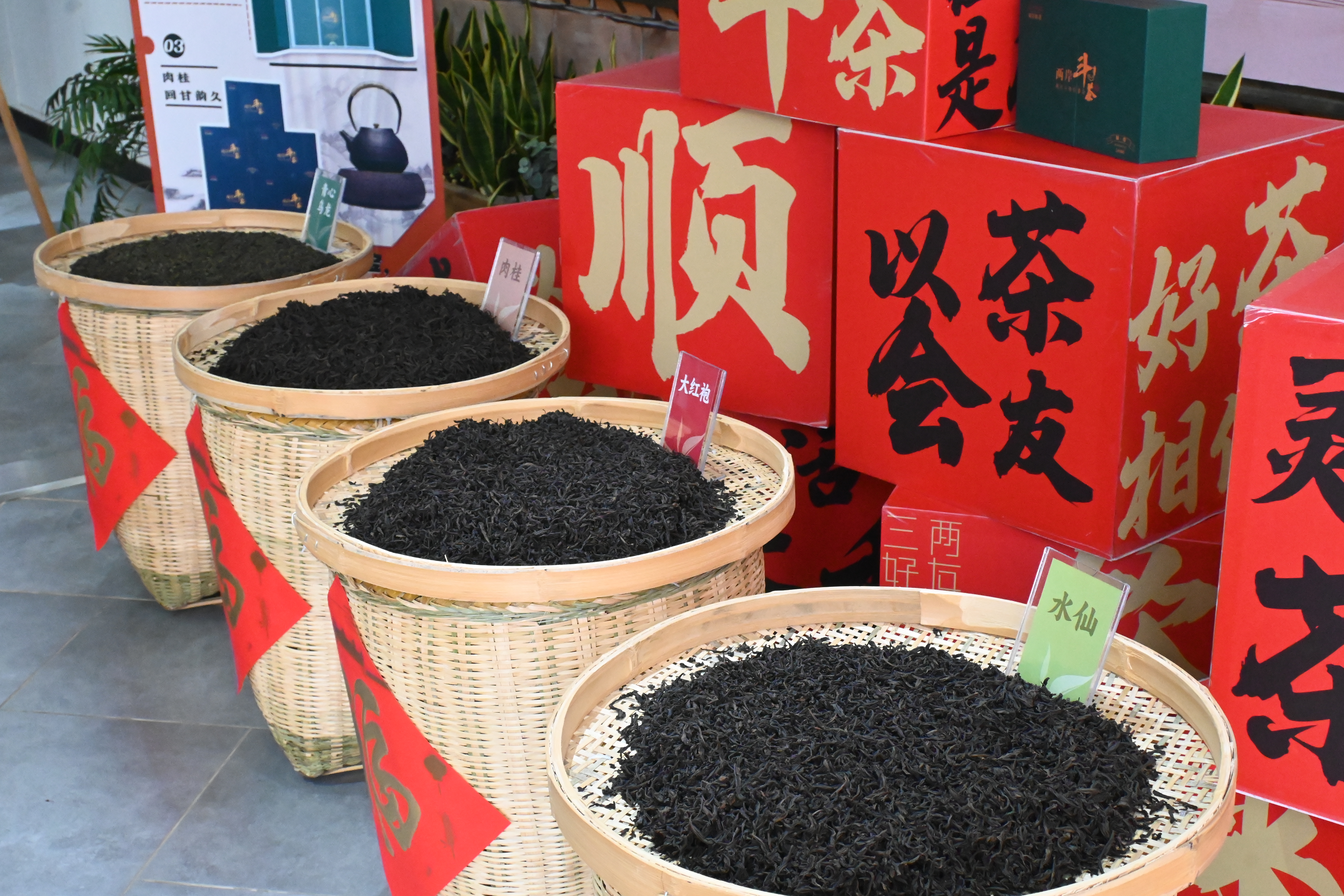Modern Tech Adds Flavor to Chinese Oolong Tea

Different kinds of tea are on display at the 2024 Cross-Strait Tea Culture Festival held in Xiamen, Fujian province, on January 19. (PHOTO: LIU Zimo)
By ZHONG Jianli, FU Xiaobo & LIU Zimo
When looking for the perfect Spring Festival gift, what springs to mind? Tea fits the bill to a T.
Originating in China some 5,000 years ago, tea stands as a symbol of hospitality and goodwill. Now it is forging closer bonds between Chinese on both sides of the Taiwan Strait.
Chen Lianfeng, a tea entrepreneur from China's Taiwan, was pouring golden-yellow tea into delicate cups at the 2024 Cross-Strait Tea Culture Festival held in Xiamen, Fujian province, on January 19.
"We hope to offer everyone the finest tea with the highest quality," Chen said.
This year marks Chen's ninth year of business on the Chinese mainland. In 2015, he relocated with his family to Yongfu, a town in Fujian's Zhangping city. The latitude and moist mountainous climate there are similar to the environment of the Alishan Mountain Range in Taiwan, making it an ideal place for cultivating high-mountain oolong tea.
Chen established a tea cooperative locally, integrating modern equipment, tea garden management and marketing with local production, bringing superior oolong varieties from Taiwan. Currently, the cooperative has 113 members.
"We have adopted modern technologies to place a premium on the quality and flavor of the tea," he said. The advanced automated irrigation system, capable of self-detecting humidity, coupled with an automatic fly-catching system that has markedly reduced the need for chemical pesticides, ensures both efficiency and safety.
The use of various technological advancements on the standardized tea processing line, such as full-daylight withering devices for the oolong tea, novel indoor tea withering machines and automated tea leaf sorting, has significantly improved the controllability of tea production.
"Mechanized production saves costs and enhances production efficiency and hygiene standards. For instance, while a worker can pack only 20 to 30 pounds of tea leaves a day, in our packaging process, a single machine can pack over 100 pounds," Chen said. "Modern mechanized production is likely the future trend of the tea industry, and we hope to pass the cost savings on to consumers, giving more people the opportunity to enjoy affordable high-quality tea."
Chen's cooperative is exploring more marketing channels, particularly e-commerce, and has launched flagship stores on online trading platforms.
Thanks to his efforts, numerous households on the mainland are drinking Taiwanese high-mountain oolong tea. In 2021, the cooperative's tea products received the "Most Popular Spring Festival Gift Award" at the 14th Cross-Strait Agricultural Products Fair in Quanzhou.
To Chen, the tea is more than a cuppa. "The fragrant oolong tea is a link bridging the two sides of the Taiwan Strait, which share the same origin and kinship," he said.






